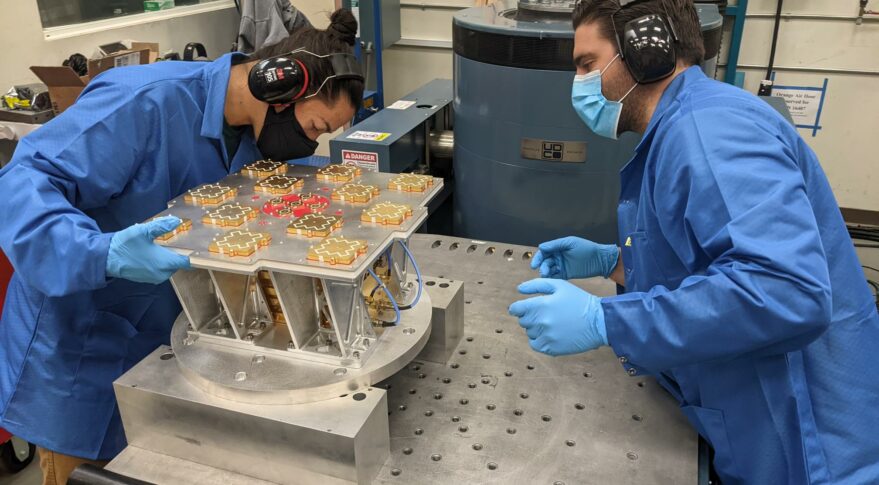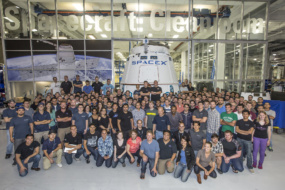Xona Space Systems, a San Mateo, CA-based startup building a GPS alternative in LEO, has raised an funding round. First Spark Ventures led the round, with participation from a range of new and existing investors, including Lockheed Martin Ventures.
Xona now raised $25M+ to date, putting this round somewhere around $15M based on previous fundraising reports.
A GNSS constellation for LEO
Xona is singularly focused on building a global navigation satellite system (GNSS) in LEO. Its planned constellation, Pulsar, is meant to be a GPS replacement tailored to modern needs and built more cheaply and flexibly than the heritage system in MEO.
“GPS was designed in the ‘70s by the Air Force for the Air Force,” Bryan Chan, Xona cofounder and VP of business development, told Payload. “It really was at a time when cell phones didn’t exist [and] self-driving cars were not even a thing that people thought about. And it’s almost by chance that civilians, people like us, are actually allowed to use GPS service.”
Tons of applications today need high-precision positioning data down to the centimeter level, such as precision agriculture, sensor-enabled construction machines, and autonomous vehicles. Xona aims to field 300 satellites for Pulsar and provide that much-needed precision.
Xona is building its constellation with three main features in mind:
- Precision. GPS can get down to a meter resolution. Pulsar is intended to get down to the centimeter level to meet high-precision needs.
- Security. “Our system adds a layer of security on that, both encryption and authentication,” said Chan. “So, all of a sudden that unlocks a lot of critical use cases.”
- Availability. While GPS signals often break in dense urban areas or even under tree cover, Chan said, Pulsar is designed to have a more powerful signal that can provide reliable coverage in these areas.
Testing it out: Xona is deploying a pair of test payloads, Huginn and Muginn, named for the mythological pair of ravens who deliver information to Odin.
- The Huginn craft launched in May on Transporter-5 and is still undergoing commissioning. The company reports that all systems are healthy so far.
- Muginn’s launch is planned for 2023. The second test mission will be structurally identical to Huginn.
Hiring and scaling: With this new round of funding, Xona is ramping up hiring across the board, in engineering, software, ground systems, marketing, and product development. The company is also moving into a new facility in Burlingame, CA, where it will be able to bring more technology testing in-house.




